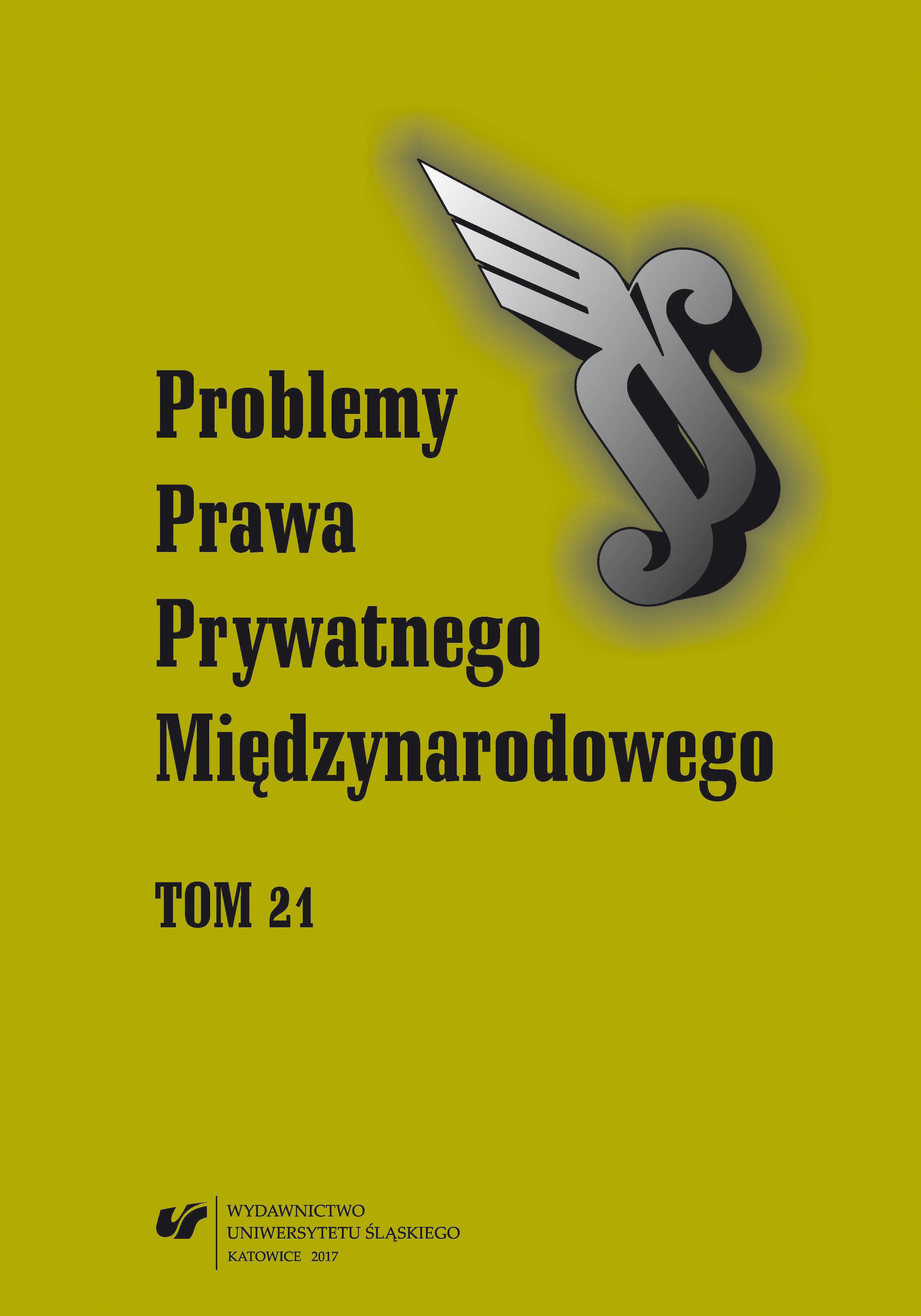Odesłanie w ujęciu przepisów rozporządzenia spadkowego
Renvoi in the Succession Regulation
Author(s): Łukasz ŻarnowiecSubject(s): Law, Constitution, Jurisprudence, Civil Law, International Law
Published by: Wydawnictwo Uniwersytetu Śląskiego
Keywords: renvoi; Regulation No 650/2012; applicable law; succession
Summary/Abstract: Since August 17, 2015 the courts of the Member States of the European Union have been applying in succession matters the conflict‑of‑laws rules incorporated in the Regulation No 650/2012 of the European Parliament and of the Council of July 4, 2012 on jurisdiction, applicable law, recognition and enforcement of decisions as well as acceptance and enforcement of authentic instruments in matters of succession and on the creation of the European Certificate of Succession. From the Polish point of view, it indicates not only the restriction of the freedom of choice of a law applicable in succession matters and the change of the general connecting factor for the purposes of determining both jurisdiction and the applicable law, but also a new approach to the doctrine of renvoi. In opposition to the other European instruments of private international law, the Succession Regulation enables, in a limited scope, the application of the foreign conflict‑of‑laws rules if those rules provide for renvoi either in reference to the law of a Member State or to the law of a third State which would apply their own law to the succession. For Polish courts it means that they have to take account of the private international rules of foreign countries to a greater extent than under our own conflict‑of‑laws rules from the 2011. The interpretation of the renvoi in the Regulation could be however a little misleading. It is not clear whether their rules accept only the renvoi arising from the rules of the third State or from the other Member State’s private international law, too. It does not determine expressly the importance of the foreign conflict‑of‑law rules concerning renvoi and the effectiveness of the choice of law made by the deceased under that private international law. The other controversial issue is the scope of the renvoi ergo the problem of the acceptance of partial or multiplicated renvoi.
Journal: Problemy Prawa Prywatnego Międzynarodowego
- Issue Year: 2017
- Issue No: 21
- Page Range: 7-41
- Page Count: 35
- Language: Polish

